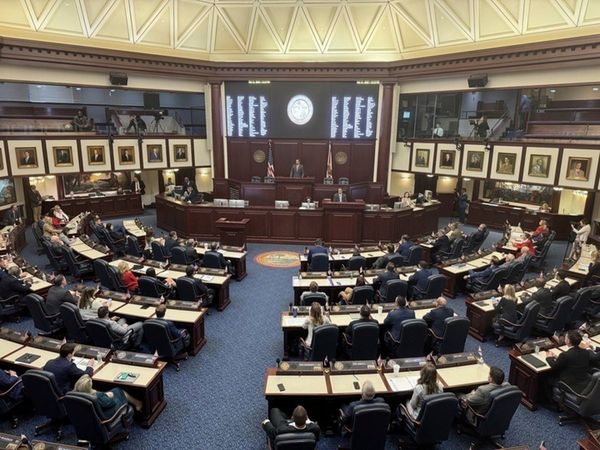
Stock were tumbling Friday, while Mideast tensions pushed oil prices higher and bond yields pulled back from record highs
The Dow Jones Industrial Average was down 125 points to 33,289, while the S&P 500 was off 26.9 points to 4,251.10 and the tech-heavy Nasdaq slipped 96 points to 13,089.
Oil prices began to recede in afternoon trading. Brent crude was off slightly to $92.32 a barrel, while West Texas Crude slipped marginally to $89.13.
Prices had been climbing earlier in response to the Israel-Hamas war.
Israel continues to signal they are moving toward a ground invasion of the Gaza Strip.
A U.S. Navy warship operating in the Middle East intercepted multiple projectiles near the coast of Yemen on Thursday, CNN reported.
Meanwhile, two American hostages, a mother and her daughter, are being released by Hamas, CNN said, citing a person familiar with the negotiations and a diplomatic source.
The two have been handed over to the Red Cross and are “on their way out,” the source familiar with negotiations said.
Tesla (TSLA) -) shares were down about 2.4% after the electric vehicle maker missed third-quarter earnings expectations.
Wedbush analyst Dan Ives, who lowered his price target $310 from $350, said he would characterize the conference call as a "mini disaster."
The yield on the benchmark 10-year Treasury note stood at 4.929% Friday, down from the brink of 5% reached late Thursday, the first time it has traded above that level since July 20, 2007.
Related: Bond-market meltdown: What's happening, what it means and why you should care
Stocks closed down Thursday amid the most aggressive bond market sell-offs in more than a year even as Federal Reserve Chairman Jerome Powell struck a neutral tone on rate hikes during a key policy speech in New York.
Powell remarks, which included a nod to softer inflation data set against the resilient domestic economy, suggest a further indication of the Fed's "wait and see" stance on near-term rate hikes, following a series of data releases showing stronger-than-expected retail sales, a resilient job market and above-trend economic growth.
“Given the uncertainty in the outlook, markets are pricing in roughly a 30% chance the Fed will increase rates in December and if not in December, then a higher likelihood of an increase in January,” said Jeffrey Roach, chief economist for LPL Financial. “However, we believe the economy is slowing enough that the markets are overpricing the likelihood of more rate hikes.”
Roach noted that investors learned from the Beige Book “that business is slowing and delinquencies are picking up, indicating the economy is no longer on a strong growth trajectory.”
Global payment company American Express (AXP) -) beat Wall Street's third-quarter earnings expectations and oil services company Schlumberger (SLB) -) beat earnings forecasts, but slipped on revenue.
- Get investment guidance from trusted portfolio managers without the management fees. Sign up for Action Alerts PLUS now.







